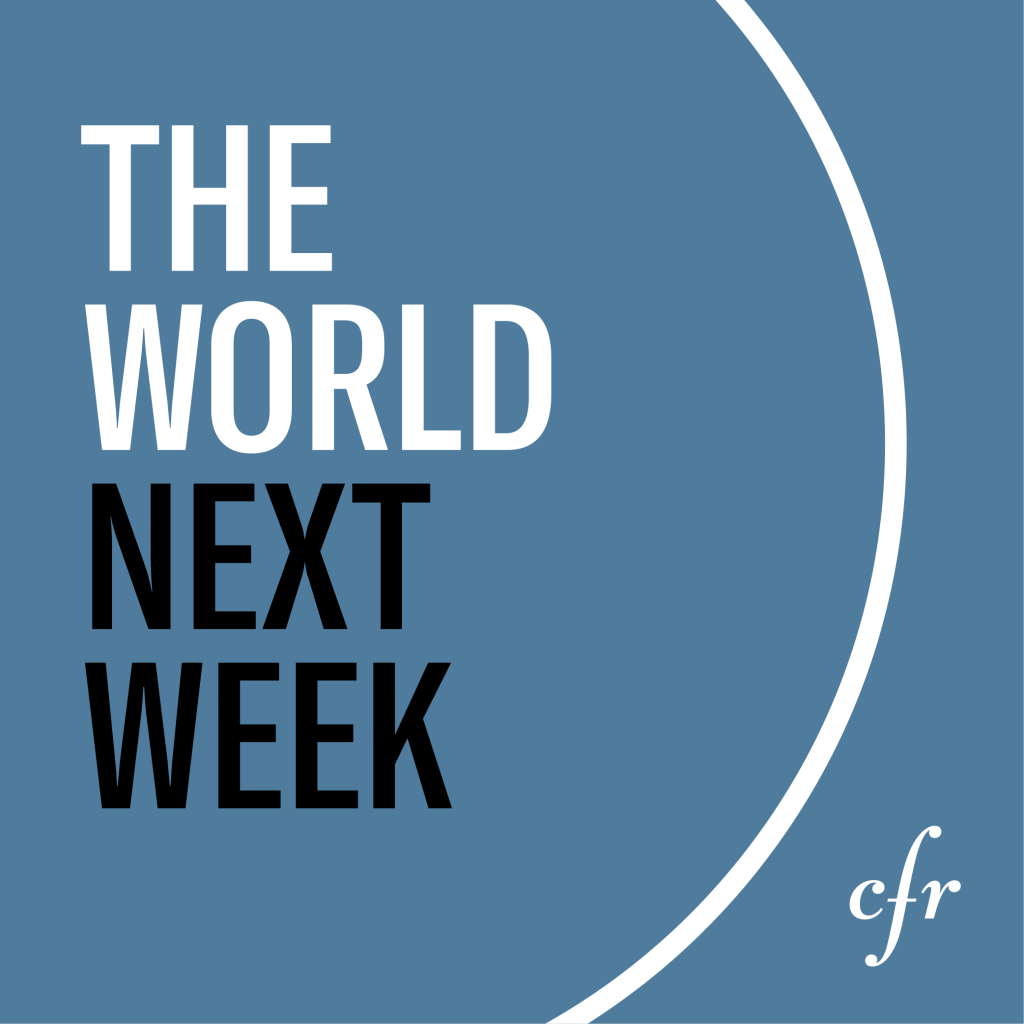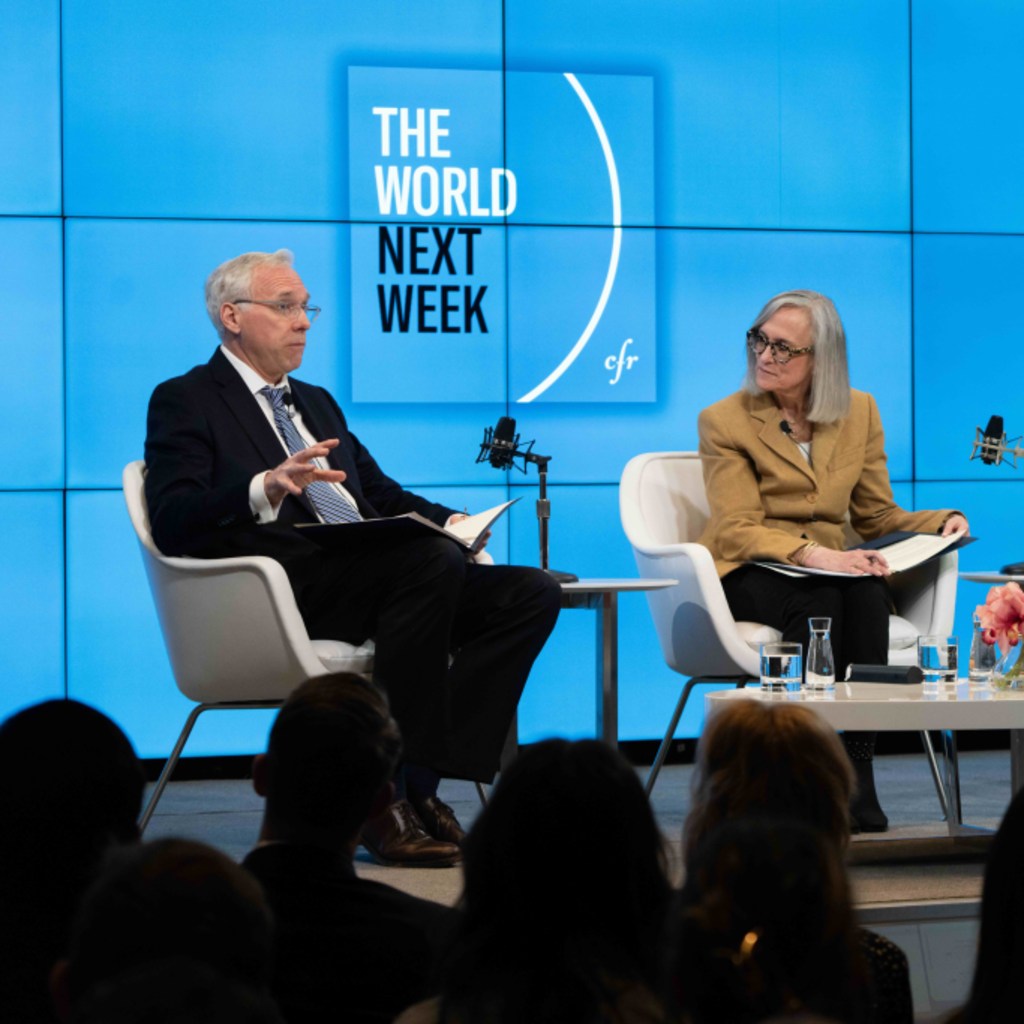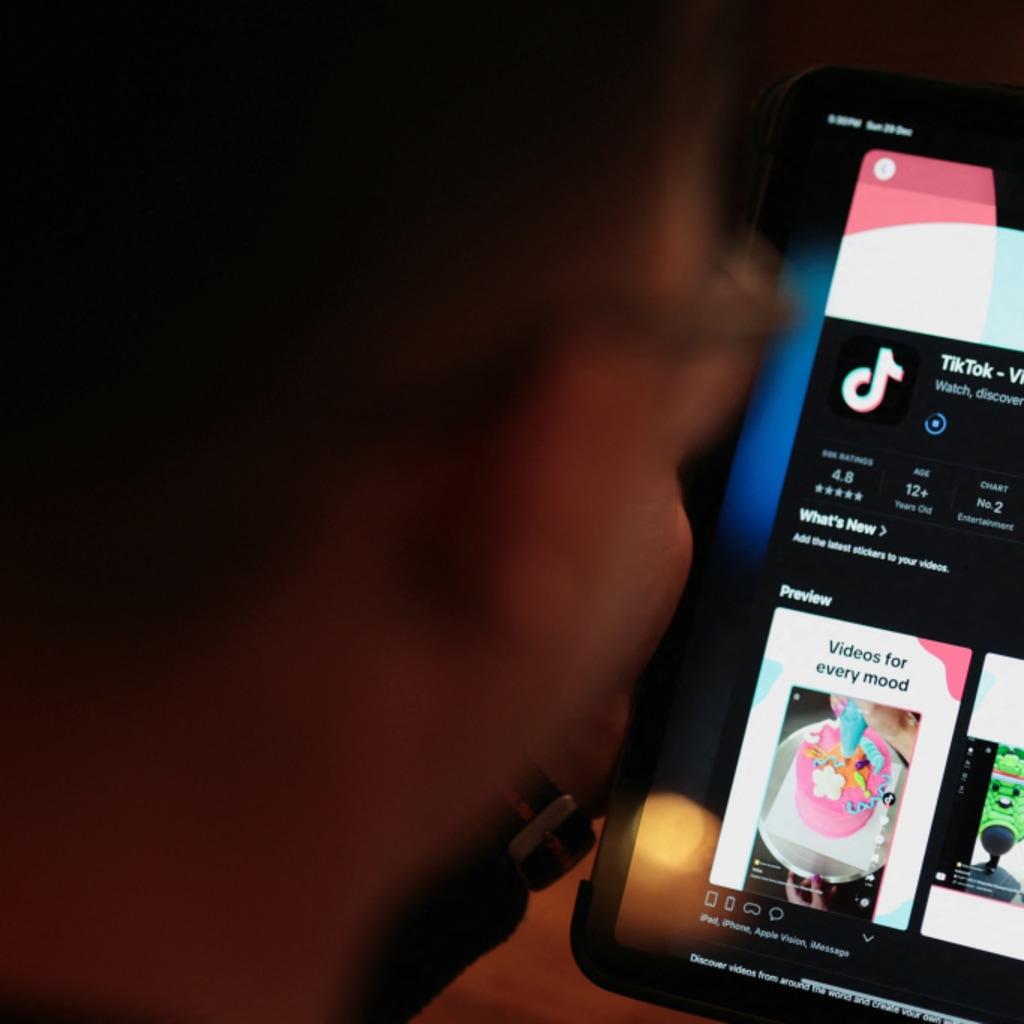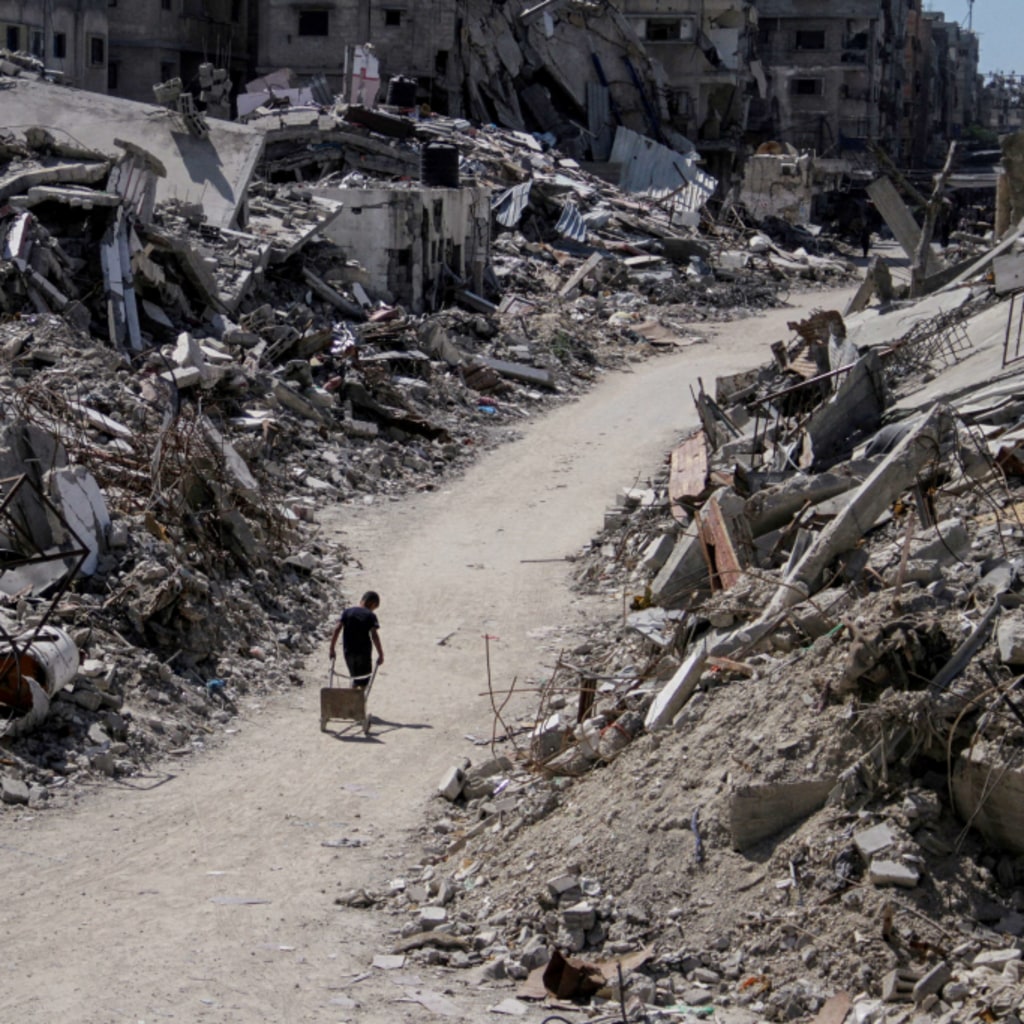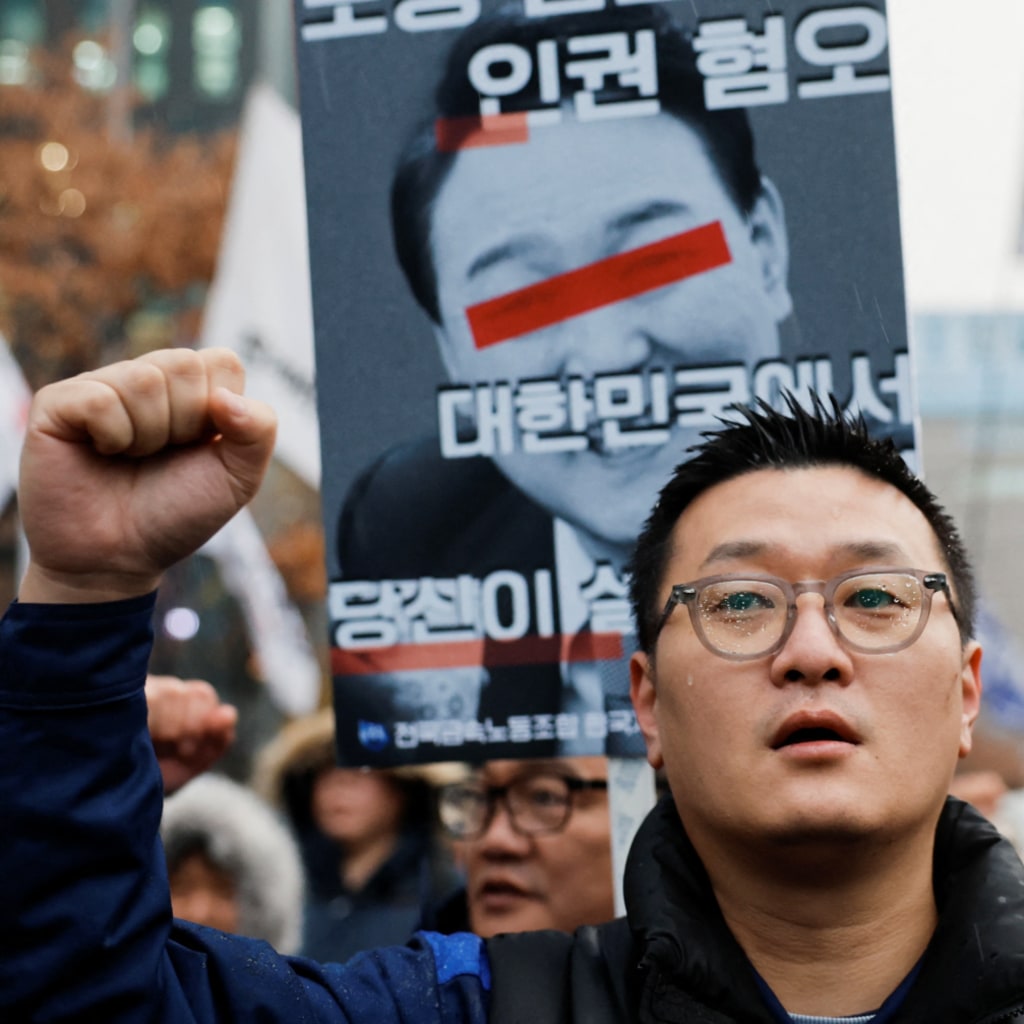Syria Returns to the Arab League, G7 Summit in Japan, UN Discussions on North Korea, and More
The Arab League summit marks the return of Syria and its president, Bashar al-Assad; Japan hosts the leaders of the Group of Seven democracies in Hiroshima, Japan, with concerns over China and Russia at the fore; the UN Security Council discusses sanctions on North Korea amid the country’s missile buildup; and migration slows at the southern U.S. border after the lifting of Title 42.
Published
Hosts
- Robert McMahonManaging Editor
- Carla Anne RobbinsSenior Fellow
Associate Podcast Producer
- Ester FangAssociate Podcast Producer
Editorial Director and Producer
- Gabrielle SierraDirector, Podcasting
Show Notes
Mentioned on the Podcast
“After Twelve Years of Blood, Assad’s Syria Rejoins the Arab League,” The Economist
Recommended Reading
Kali Robinson, “Syria Is Normalizing Relations With Arab Countries. Who Will Benefit?,” CFR.org
Transcript
MCMAHON:
In the coming week, the Arab League Summit marks Syria’s return, Japan hosts the G7 Heads of State Summit, and the UN discusses sanctions on North Korea. It’s May 18th, 2023 and time for The World Next Week. I’m Bob McMahon.
ROBBINS:
And, I’m Carla Anne Robbins.
MCMAHON:
Well, Carla, let’s kick things off in the Middle East. Tomorrow, Saudi Arabia hosts the annual Arab League Summit. Now, this is a group that has been generously described as a boring talking shop. However, big development is being noted which is the return of Syria after more than a decade of its absence. The Arab League is bringing Bashar al-Assad back into the fold. There is no manifest signs that he has changed his posture or his regime’s positions in any way, but he’s back. Can you tell us why?
ROBBINS:
So, Bob, as you have kindly noted, the league, which rarely takes a stand on anything, suspended Syria in 2011 when Assad began a brutal crackdown on anti-government protestors, students in the beginning. And, that was the opening stage in the Syrian civil war. And, now the league has invited Syria back and it looks like Assad is going to show up for Friday’s head of state meeting agenda and as The Economist magazine summed it up so aptly, one of the 21st century’s worst war criminals makes a comeback.
You know, just a reminder of Assad’s many horrors and why this is such a terrible message of impunity. His repeated use of poison gas against children, women, men, including chlorine and the nerve agent sarin. I’m sure you remember those awful videos from Ghouta. Imprisoning, torturing and murdering tens of thousands of his opponents. And, along with his Russian allies, turning multiple cities in Syria into rubble. And, as recently as the February earthquake that hit both Turkey and Syria, Assad’s forces were blocking deliveries of aid to opposition-controlled regions which suffered an enormous amount of the damage. Syria is not a member of the ICC, so no formal charges have been brought against Assad, but human rights lawyers are pushing the case under a really interesting legal theory that some of his victims fled to Jordan, which is a member, and so he should be subject. So, he and his henchmen still may get there.
So, why did the Arab states and particularly Saudi Arabia, which orchestrated Assad’s return, decide to do this? Many say this is simple acceptance of reality; Assad won and we have to deal with him and the aftermath of this war. The Saudis and others hope they can pry Syria away from Tehran. I think it’s a fool’s errand. Syria’s neighbors Jordan and Lebanon are really eager to negotiate a return to Syria of millions of refugees, as is Turkey. And, many members would like to curb the flow of an illegal amphetamine, captagon, which has become a scourge in the Middle East and this multi-billion dollar industry is run by relatives and close associates of their new friend Assad.
The U.S. isn’t happy about Assad’s return. Secretary of State Antony Blinken tweeted his opposition in early May really against the normalization but privately they’re saying at least try to get something from it. And, so far, it doesn’t seem like Assad has given up anything. There’s been no commitment on political reform, no admission that he still holds chemical weapons stocks, no sign of any accountability for anyone who has committed so many war crimes and no plan to safely return millions of refugees.
MCMAHON:
So, Carla, it seems to be that this is Saudi Arabia in part exerting some influence. It’s been involved in a bit of a flurry of diplomacy recently, including perking things up again with Iran, with using China’s good offices, apparently. And, it certainly works for Assad in terms of being let back into the room. But, hard to see it bestows any extra creditability onto the Arab League. I’m wondering if we have further to watch in terms of Syria being invited back into other chambers. As you said, the U.S. is not happy with this and has vowed that it’s going to continue to press sanctions and particularly press against Assad. But, you have in nearby Turkey a runoff coming up with Erdogan where he appears to be ready to continue his rule there and he has signaled that he might be opening up the doors to Assad relationship. So, it just seems like this is a pendulum that’s swung back in Syria’s way.
ROBBINS:
Well, Assad holds one thing that everybody wants which is people want those refugees to go home. It’s not safe for them to go home and Assad has not changed his colors. They left for a reason and so it would be horrifying if these countries were to force these people out, but Assad does hold that. But, most of these things that we’ve gone through the list are not good things that are his leverage. Do the other countries have any leverage over Assad? They’ve given away one big one by letting him back into the Arab League. A lot of countries haven’t reestablished diplomatic relations the way the Saudis have, so maybe we can cross our fingers and hope that they try to find some leverage.
Perhaps the biggest leverage they hold is this question of reconstruction because it’s Assad’s own fault. He turned his own country into rubble. The Saudis have a lot of money. They tend to not spend it. But, Assad really more than anything else wants reconstruction aid and certainly one would hope that there would come a genuine price for it. He’s certainly not going to turn himself in to the ICC and he’s not going to commit to a political process that’s going to force him out of power. But, some sort of something. He’s got to give something up, I would think, and so far he’s not given anything up.
MCMAHON:
Yeah. It’s... As you indicated, it just seems like we are entering a new age of impunity for people, not just Assad but as we’ve seen with the ongoing embrace of Vladimir Putin by a number of countries, including some countries that are sort of quasi-democracies. There seems to be little taste for kind of making a statement against such people. And, let’s keep an eye on Saudi Arabia for a change in the Arab League this weekend.
ROBBINS:
Well, it is. I mean, when you look at it, the Russians are focused less on destroying Syria because they’re focusing so much on destroying Ukraine. But, the complicity of the Russians and the complicity of the Iranians in the destruction of Syria should not be forgotten as well. They stopped counting the number of people who were killed in Syria because the number got so high. We all moved on from the destruction there, but he violated every international humanitarian law, rule, and this is impunity. Completely unacceptable what the Arab League has done.
So, Bob, let’s talk about another major global leaders meeting that I hope will be a little bit more productive. Tomorrow, the Group of Seven has a summit in Hiroshima and as this year’s host, Japan is in charge of laying out the agenda. Is it all about China and Russia, two countries that are not going to be there, and will the G7 come away with any new policies or understandings?
MCMAHON:
Well, there’ll be a lot of China and Russia, certainly, but this is a big moment for the G7, a big moment for Japan. The agenda is absolutely jam-packed and as we’re seeing with the bilateral meetings already playing out in the country and then the full summit kicks off tomorrow, they’ve got a lot on their plates. We should note of the G7 states, Japan is the lone one that’s not part of sort of the transatlantic fold. It does not have the kind of nurturing presence of NATO or the economic security of the EU to fall back on. So, it has had to chart its own course for many decades in its post-war democracy. It’s done that through its own sort of self-reliance but certainly it’s skillfully worked through the United Nations and it values its membership in the G7 and it has really stepped up in response to the Ukraine invasion by speaking out on behalf of what’s called sort of the rules-based international order.
Rule number one. You do not unilaterally invade another country and violate its sovereignty in such a way and all the things that Russia is committing in Ukraine and all the things that have happened because of that, the way it’s subverted everything from international rule of law to global supply chains and other things. It’s a moment of great concern there. So, Japan wants to speak out on Ukraine and sort of coalesce the G7 position on that, whether that involves further sanctions on Russia or a promise for more aid for Ukraine. We’ll have to see what they gather around on that. But, it’s going to be worth watching.
Japan’s also mindful of the so-called Global South, the countries that are less developed, that are not part of these major wealthy nation clubs like the G7, but yet countries that Western nations would like to be part of the fold in terms of condemning Russia’s actions in Ukraine, for example. And so, it has invited to the G7 an interesting list of representatives, including leaders of Brazil, Vietnam, Indonesia. Even the tiny island nation of Comoros off of southeastern Africa is there. It’s worth noting Comoros is on a bit of a roll at the moment. It’s also part of the Arab League, which we just mentioned, and currently chairs the African Union. So, look out for Comoros speaking out on the global stage.
But, more generally, this is supposed to be a G7 meeting that is reaching out to the global south to basically say, “We hear your concerns and we’re ready to speak with you about this.” And, that’s going to be interesting. Japan, because of its unique history and its unique role as having been the first nation and the only nation to be attacked with nuclear weapons in Hiroshima and Nagasaki, is going to make a big statement about the concerns about nuclear threats, re-emerging nuclear threats, re-emerging proliferation, and Hiroshima was chosen for a reason as the host city of this summit. It also happens to be the home area of the prime minister, Fumio Kishida. And so, you’ll see the G7 leaders being exposed to some of the horrors that happened in Hiroshima. There are still survivors, people who were small children when the attacks occurred, who are going to be talking about what happened, sort of providing witness to what happened then.
And, the goal here being to reinforce concerns, reinforce momentum, let’s say, about arms control, about non-proliferation, whether it relates to how to respond to countries like North Korea which are saber rattling intensely at the moment or reviving efforts for some sort of Iran nuclear deal to stop their uranium enrichment program from proceeding. Or, how to respond to the rhetoric from Russia, which has been really disturbing in relation to Ukraine. Russian President Vladimir Putin continues to sort of cite either directly or indirectly its willingness to take whatever means necessary to protect itself in regard to the Ukraine and Ukraine’s allies.
So, there’s a lot on the nuclear plate. There’s other existential questions. Certainly climate change is going to come up and what countries can do to revive support for the Paris Accord and limiting emissions and so forth. There’s been recent reporting that the world’s going to blow past the goal of limiting temperatures from 1.5 degrees Celsius increase that that’s going to be exceeded in the next five years. So, there’s all sorts of fresh impetus on that front as well.
ROBBINS:
So, the Biden administration of course has been pressing very hard on the China technology issue and the restriction of sales of advanced semiconductor technology to China. Japan is a believer on this front. I think we can expect that the Biden administration is going to press that with other G7 leaders. Are they going to make any progress in this meeting on that issue?
MCMAHON:
So, that’s going to be a point of potential tension. The U.S. has been pressing especially its European allies on that front and like the U.S. and like Japan for that matter, all these countries in the G7 for the most part have pretty major economic ties with China still despite the antagonisms of the recent years and it’s a question about whether some of the European countries in particular, France or Germany, are going to be in line with these sort of controls. There’s going to be a great deal of talk about how to provide alternatives to export perhaps to replace some of that business. But, that’s not going to happen any time soon.
So, I think you’re going to see maybe some paper over disagreements, maybe more of a focus on security concerns from China. Again, this is a summit based in Asia. Most of these countries are far from Asia, so they’re going to get a reminder about how China’s been asserting itself in its region, in its backyard, that many of these areas of which it sees as its own territory. And so, in a statement that sort of reaffirms a quote, “Free and Open Indo-Pacific,” is going to be in the cards for this summit as well.
ROBBINS:
So, Zelenskyy is the master at showing up at meetings like this, if only virtually. There’s some talk that maybe he’ll show up in person. You think that may mean major new commitments of support from this meeting? He’s been getting a lot of commitments while he’s been traveling around Europe and interestingly the U.S. may not be the most enthusiastic member at this meeting when it comes to arming Ukraine. There’s this brewing disagreement with the Brits in particular. They’ve been pressing Washington to allow Ukraine to begin training on the use of F-16 fighter jets. We see this of course. Biden doesn’t want to give HIMARS and then he does. He doesn’t want to give Patriots and then he doesn’t want to give Abrams tanks.
This I think is probably going... Maybe he’s suprosa. Maybe out in public at this meeting as well and if Zelenskyy shows up, you know he’s going to push it in public. So, what do you expect on Ukraine from this meeting?
MCMAHON:
I do think you’ll see more talk of aid for Ukraine, whether it’s non-military or more armaments. Certainly it’s running perilously low on ammunition and the ongoing talk of the Ukrainian spring offensive. And, by the way, I think Ukraine is never going to telegraph when it’s going to start an offensive. It’ll happen and we’ll find out about it after the fact. And, by many accounts, it has been trying to stockpile adequate supplies to be able to carry forth such an offensive.
But, this meeting’s happening after several days in which Russia has been directing missile attacks against Ukrainian cities, whether it’s the capital, Kyiv, or Odessa, and Ukrainians have been responding pretty vigorously and pretty successfully. There were reports that a Patriot defense system was damaged. Ukrainians denied the Russian reports of that. It seems like something did occur that affected one of the Patriot systems, but.
ROBBINS:
Although it’s working again today. They just knocked something down today. So, Thursday.
MCMAHON:
That’s right. So, it seems like they are maintaining an ability to be really effective on taking on incoming, whether it’s hypersonics or drones or whatever. So, that’s been interesting but it’s also drawn new focus to the fact that Ukraine is looking for support for air support, also for military jet support, and that’s an area that the U.S. has been very wary of, as you’ve indicated. It’s a really delicate and really dangerous sort of maneuvering that has to go on in terms of the escalation of this because of how Russia in particular will respond, how deeply the alliance gets into it, how much the U.S. is willing to send its own materiel over, own materiel to an extent that it depletes its own capabilities, for example. This is going to be, to your question, I think a source of some pretty serious debate. Maybe something handled mostly behind doors with a few public questions lobbed in that direction, especially if Zelenskyy either virtually or in person makes a case of this, which we could expect him to.
ROBBINS:
Zelenskyy doesn’t hold back.
MCMAHON:
He does not mince words.
ROBBINS:
Yes.
MCMAHON:
So, that’s one of his strong suits but some say one of his faults in terms of when he could maybe be more tactful. He is after all fighting for the survival of his nation.
ROBBINS:
I think it’s definitely a strong suit.
MCMAHON:
Well, Carla, I want to take one of the threads of this conversation and carry it further, which is North Korea. Next Wednesday, the UN Security Council is due to hear from what’s called the UN 1718 Committee. The Security Council has committees that oversee all of their various sanctions and this one is the committee that oversees sanctions on North Korea. In the past, and by the past I mean maybe five to ten to fifteen years ago, there was a bit more unity on these committees in terms of making sure that there was containment involving North Korea’s programs. That unity has seemingly unraveled, especially with China and Russia no longer being as vigorous in terms of overseeing North Korean controls. So, are we looking at a 1718 Committee that’s going to be weakened as a result of this week’s talks?
ROBBINS:
Absolutely. So, the 1718 Committee is not a reference to the American Revolution in any way, shape or form. It sounds like something like that. The 1718 Committee is named after the first UN Security Council resolution adopted in 2006 after North Korea’s first nuclear test and since then the Security Council has unanimously passed nearly a dozen sanctions resolutions that have banning the trade of arms and military equipment to the North, freezing the assets of key players in the country’s nuclear program, capping imports of oil and refined petroleum products, and banning the import of many of the luxury goods that are near and dear to the leadership.
You know, those resolutions and sanctions haven’t broken the North of its bad habits. Since 2006, it has conducted another five nuclear tests and continues to churn out fuel for nuclear weapons. In March, Kim unveiled a new smaller nuclear weapon. We don’t know if it works, but if it has mastered it, that’s technology that it needs to if it wants to mount a warhead or an ICBM. And, it continues to improve that missile technology. It has already staged twelve rounds of missile tests this year including for the first time what it says is a solid fuel ICBM. And, those things are a lot easier to hide and move around which makes it a lot harder to target if you want to have a preemptive strike.
So, they are moving forward full bore on all of their technology. So, even if diplomats were able to come up with a new strategy to pressure the North, as you noted, Bob, it now looks like any hope of the Council acting has disappeared. Last May when the 1718 Committee did this briefing, and they do it every ninety days, the U.S. drafted a new resolution that would have tightened and expanded sanctions, including reducing the amount of oil that member states can supply to the North. And, for the first time since the 1718 resolution, both China and Russia exercised their vetoes. So, the end of unanimity. And so, it doesn’t look like there’s any chance going forward.
Certainly the committee will continue to exist. Certainly it will monitor sanctions compliance. How frank it is about the fact that the greatest violators of these sanctions are these two members, the Chinese and the Russians. But, the chance of anything more creative of upping the pressure on the North Koreans... I don’t see any new policy coming out of the Security Council moving forward. So, if anything is going to happen, it’s going to have to happen outside the UN and while the Biden administration has said it is prepared to talk with no pre-conditions to Pyongyang, so far the North hasn’t been willing to take it up on that offer.
MCMAHON:
And, this leads to countries needing to take extraordinary steps. So, we just had a recent state visit of the South Korean leader to the U.S. An extended deterrence was termed stressed by both sides and that’s the U.S. helping to support South Korea and provide deterrents for a nuclear attack and sort of manifestly doing so as a way of signaling to North Korea. North Korea tends to get antagonized by this, tends to ramp up its own testing and threats and so forth. It’s a really dangerous spot to be in, certainly in the twenty or so years since I’ve been following this issue closer, Carla. And, as you say, with the main leakers now serving as sort of the main shields for North Korea and the Security Council, it doesn’t seem like there’s a global mechanism for limiting them.
ROBBINS:
Well, there isn’t a global mechanism for limiting them and the North is truly an erratic state. It’s very hard to figure out what they want to do. Survival is probably it and there’s nothing better to guarantee a regime’s survival than having nuclear weapons. So, the realpolitik understanding of this is that is may be impossible to get them to give up those nuclear weapons, which is not a good thing for the non-proliferation regime but a reality that probably has to be considered.
But, this is an extremely belligerent regime and those missile tests and beyond the fact that maybe you can say, “Well, they’d have to be crazy to actually hit anybody with a nuclear weapon,” it’s hugely destabilizing potentially in the region and even an accidental hit, one of those missiles tumbles and it falls on Japan... What does it do for the U.S. commitment of extended deterrence to Japan? What does it do for the U.S. commitment of extended deterrence to South Korea? This is... Even just a kinetic hit there of a simple missile... It’s very destabilizing.
As you noticed on the Yoon visit that Biden guaranteed consultation on anything having to do with nuclear weapons. But, that only came after Yoon threatened that South Korea might build its own nuclear weapon. And, you can bet that the Japanese, which are sitting on a whole pile of plutonium, as much as they are the only victims in history of a nuclear attack... The Japanese were listening very closely not just to what the North Koreans are doing but to the threats of the South Koreans potentially developing nuclear weapons.
MCMAHON:
Yeah. It’s... It just seems like there’s a huge amount of work ahead to get back to anything like what we had at the beginning of this century, which was this multi-party process. China was very invested and I think they were invested, and Russia to some extent too, in the fact that, for the reasons you cited, they did not want to see the instability and the threats posed by an erratic North Korea. But, things are so bad between these two powers and the United States in particular that they don’t seem to be worried about stresses caused to Japan or South Korea on the one hand and also that the U.S. is going to be put in a very difficult spot. And so, wherever you look, it just seems to be a very troubling file to try to have to solve.
ROBBINS:
Well, the U.S.... I... This is the thing I don’t understand about the Biden policy toward China. When they describe all of the things that China does wrong, I get it. Intellectual property theft, threatening their neighbors, repression of their own population. All of those things are absolutely true. At the same time, you can’t deal with North Korea without China. There’s lots of things you can’t do without China. You can’t deal with climate change without China.
MCMAHON:
Oh, and they’ve mentioned climate change repeatedly as the area they really want to work with China on. But, less so North Korea, to your point. It just seems like that would even be more pressing in some ways.
We should also note, which I did mention in the G7 discussion, that I think Xi is happy to see President Biden cut short his trip to the region because of the debt ceiling talks in the U.S. so he can point to it as a sign of sort of U.S. domestic weakness but also it’s one or two less meetings the U.S. can have with leaders from the region, especially those in the Quad, although those leaders from India and Australia in particular are going to be meeting with the U.S. on the sidelines of the G7. But, still, there’s no special meeting in Australia. There’s no special meeting in Papua New Guinea. And, China continues to hold huge sway over its region and also have leverage if it so chooses over the North Korea issue and Xi doesn’t seem to be interested in any sort of accommodation on that area.
ROBBINS:
Yeah. I think a lot has been made about the fact that Biden had to cancel that last part of his trip. Listen. The biggest issue for the G7 and for smaller countries... If the U.S. destabilizes the global economy, they’re going to be a hell of a lot more... Excuse me. Excuse my French. They’re going to be a lot more worried about that than they are going to be about a visit and the White House has said they’ll make up the visit.
MCMAHON:
Yeah.
ROBBINS:
Biden is not the first president that cancels a meeting because there’s a crisis at home. It would look much more irresponsible if he had avoided the conversation back in Washington about the debt crisis. And so, big challenge for Biden at that G7 meeting is to try to reassure the leading global economies, which is ultimately what the G7 is, to know that the leading global economy is not going to implode.
MCMAHON:
Indeed.
ROBBINS:
So, Bob, I think it’s time to pivot and discuss our audience figure of the week, which listeners can vote on every Tuesday and Wednesday at CFR underscore org’s Instagram story. And, this week, Bob, our audience selected, “U.S.-Mexico Border Crossings Drop 50 percent.” So, this isn’t the cast everyone was predicting with the expiration of Title 42. Do we know what’s going on?
MCMAHON:
I think we have a sense, Carla. Whether it’s the border or other issues in this region, they rarely go to prediction. Chaos at the border has been a cudgel the Republicans have been using against the Biden administration for a long time. There have been difficulties and a huge surge in border crossings, to be sure. Has there been chaos? Not necessarily, even when the levels reached 10,000 a day, which they did before the expiration of the so-called Title 42 last week. And, then those numbers dropped. They dropped by more than 50 percent, as our audience figure shows. So, the last couple of days, I think they’re at about 4,000 a day. By the way, that’s not insignificant and people who are seized and detained for example further add to the burdens of those who are trying to process these cases, whether or not it’s sending people back to their countries of origin or to Mexico or to actually process asylum cases.
But, we should just note that what’s playing out in terms of the policy. So, the United States is going to continue this policy that dates back to early in the year of letting up to 30,000 asylum seekers a month from collectively Cuba, Haiti, Nicaragua, and Venezuela, come into the country if they apply through this app known as CBP One. It’s been much maligned. I guess it works in some cases. But, still and all, that’s the route they need to come and if they cross illegally, they will be banned from applying for entry for five years. That’s pretty tough medicine to take for those who are trying to flee.
And, again, as we’ve talked about previously on this podcast, Carla, a lot of these people are fleeing truly awful circumstances, whether it’s crime, whether it’s regime failure, whether it’s some sort of natural disaster. And, the four countries I mentioned obviously dealing with lots of... A combination of all of those in some ways. And so, it’s a tough position to be in but the numbers are down. Those who have followed these issues regularly say you cannot rule out the prospect of those numbers coming back extensively.
And so, there’s also concern about those who do come through, whether they are not they are playing a role in some way of illegally smuggling in fentanyl, although fentanyl seem to be smuggled in other ways by many reports. And, fentanyl is a truly grave threat right now. There were just new reports that the country had 100,000 deaths from overdoses last year. Since 1999, more than a million people have died of overdoses and fentanyl is a true national security threat according to just about anybody you speak to now on the issue.
But, this isn’t about fentanyl. This is about migrants. It’s about asylum seekers in particular. And so, there’s going to have to be a path for them to try to come through legally. There are still going to be people returned either to Mexico or to origin countries and there are still going to be people trying to traverse Mexico to get to that border and we’ll just have to keep an eye on it. But, I’m not seeing a crisis fizzle out as we are seeing just things slow down for a little bit.
ROBBINS:
So, this new policy which follows on new policy as well which for Haitians, Nicaraguans, Venezuelans, Cubans, which is at 30,000 people a month. They can stay and work for two years and then they have to go back, which seemed to also lower the numbers. Are they just coming up with smarter policy? That’s one possibility. And, the other possibility is are they, even as they work on somewhat politically driven policy to just lower the numbers, are they squeezing out people who have genuine need to apply for asylum? Are there people who are just going to get squeezed out who should be let in?
MCMAHON:
I think that’s the assumption. Try as they might to process legitimate cases, it’s just... It’s down to human nature. It’s down to human capabilities. How many people are going to be able to navigate a bulky app, for example, repeatedly and have the patience to do that even with their...? Really their lives and their family’s lives on the line. That’s a problem and that’s part of the human tragedy of all of this, Carla, even while others who might be just seeking greater economic opportunity. But, that’s not covered under the asylum process, so it’s... It’s going to be I think a mixture of that and they’re going to continue to try to get smarter at this. It’s a real melange of attempts but the blunt weapon of Title 42 which was a health care... Using health care grounds to just rapidly send people back is not going to be the way anymore, nor should it be, and while the numbers are still high and the concern is still high and the capability of the U.S. to process cases is still challenged, there has to be another way.
I think it would be hard to find a set of other policies that would be more effective and more trying to be humane than what Biden is trying right now. But, it has strains and we should also note it’s got strains on Mexico. Mexico, as we talked about recently in the podcast, had this terrible incident where a lot of migrants who were housed in a Mexican building were killed in a fire. Some officials were fired and reprimanded because of that. It caused strains on the Mexican side. Mexico also rankles at being accused of being a drug runner nation. And so, we’ll see how long that sort of bilateral arrangement works in which Mexico stages a number of people, thousands and thousands of people, as part of this whole thing. It’s an extremely difficult situation and by the way, anywhere around the world, countries are grappling in their own ways and sometimes very inhumane ways to deal with this same type of issue.
And, Carla, that’s our look at the world next week. Here are some other stories to keep an eye on. Foreign ministers of adversaries are meeting in Azerbaijan Moscow. General elections take place in Greece and Sierra Leone. And, the African Development Bank calls its annual meeting in Egypt.
ROBBINS:
Please subscribe to The World Next Week on Apple Podcasts, Google Podcasts, Spotify, or wherever you get your podcasts. And, leave us a review while you’re at it. We really do appreciate the feedback. The publications mentioned in this episode as well as a transcript of our conversation are listed on the podcast page for The World Next Week on cfr.org. Please note that opinions expressed on The World Next Week are solely those of the hosts, not of CFR, which takes no institutional positions on matters of policy.
Today’s program was produced by Ester Fang, with the Director of Podcasting Gabrielle Sierra. Special thanks to Sinet Adous for her research assistance. Our theme music is provided by Miguel Herrero and licensed under creative commons. This is Carla Robbins saying またね (mata ne).
MCMAHON:
And, this is Bob McMahon saying so long and be careful out there.
